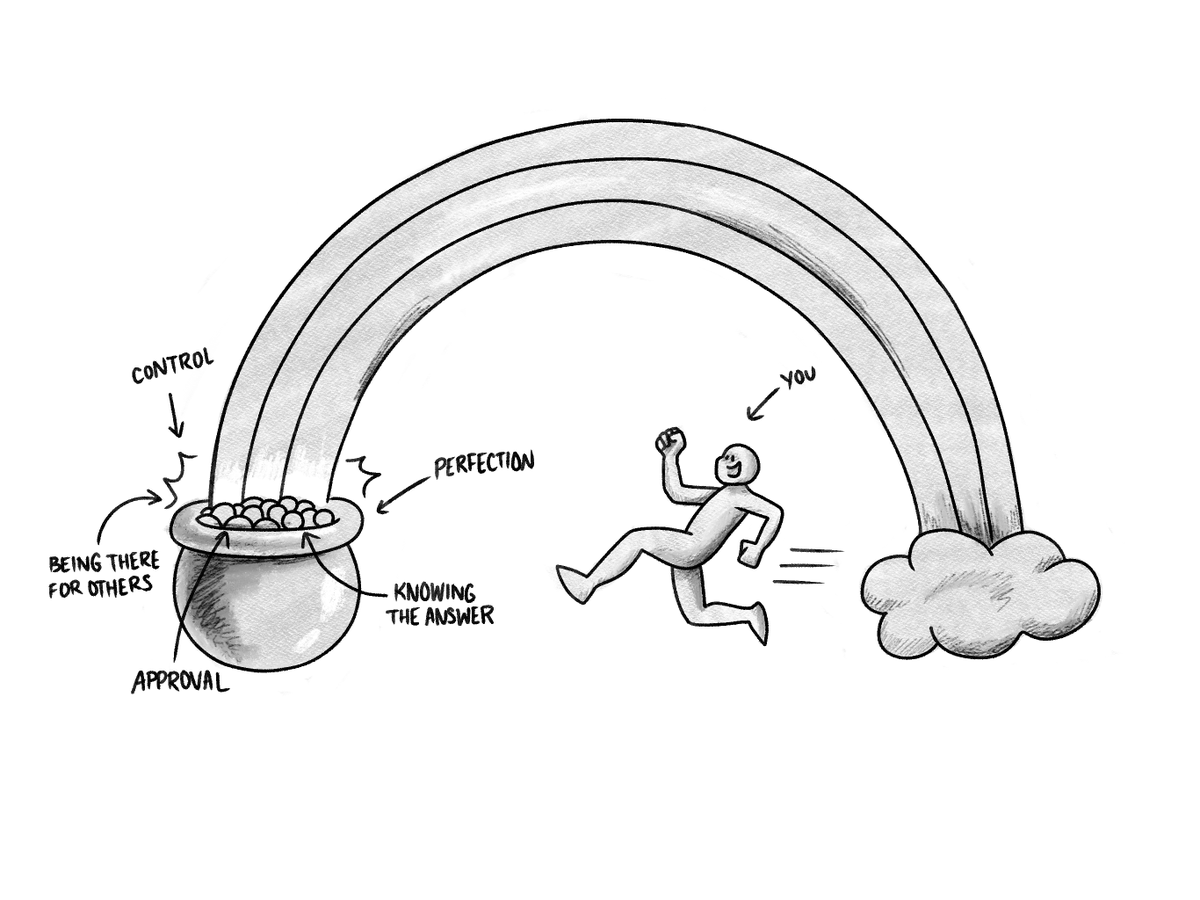Knowing when you are in anxiety's grip is not as easy as we might think. One sign is that you no longer notice God's presence.
Chronic Anxiety has a gospel, various forms of 'its all on you' along with some messages of doom. Your inner critic is often the messenger boy.
1/
Chronic Anxiety has a gospel, various forms of 'its all on you' along with some messages of doom. Your inner critic is often the messenger boy.
1/
If you can begin to notice when you no longer notice God's presence, when you act like it is all on you, you can pause, talk a deep breath or five and remember two great realities:
2/
2/
1. It is not all on you. God is with you.
2. Better yet, God is already at work in the situation you're anxious about. You will enter a situation where God is and is already at work.
So often we think we're 'bringing God with us.' Nope. God is already there.
3/
2. Better yet, God is already at work in the situation you're anxious about. You will enter a situation where God is and is already at work.
So often we think we're 'bringing God with us.' Nope. God is already there.
3/
I live in the Denver area, also known as 'a church planter's favorite place to try.' The unchurched % around here is high, so lots of church planters come. Almost all of them, very sharp and decent people. Gospel people.
A handful of them send their flyers ahead of time.
1/
A handful of them send their flyers ahead of time.
1/
I get a flyer in my mailbox about an upcoming church launch. Great! We need more Gospel churches.
3 or 4 of the flyers have actually said, 'We are bringing God to the Front Range of Colorado.'
2/
3 or 4 of the flyers have actually said, 'We are bringing God to the Front Range of Colorado.'
2/
But God has been here a good while already. Philip and Janet Yancey moved here in the 90s. I think we can agree that God has been here at least since Philip Yancey arrived.
Richard Foster has been here since the 70s, I think. Don't you think God showed up at least then?
3/
Richard Foster has been here since the 70s, I think. Don't you think God showed up at least then?
3/
Tongue in cheek of course. Church planting has enough pressure without the false pressure of carrying God.
God is unfettered and free and sovereign. As you plant that much needed church, you can relax in the knowledge that God has been at work here for a while.
4/
God is unfettered and free and sovereign. As you plant that much needed church, you can relax in the knowledge that God has been at work here for a while.
4/
What pressures are you carrying? How do you know if you are not well? Sometimes you need to ask a friend.
Tending to your soul, relaxing into the presence of God will make you more effective, more present to what God is doing in your midst.
Peace be with you.
5/5
Tending to your soul, relaxing into the presence of God will make you more effective, more present to what God is doing in your midst.
Peace be with you.
5/5
• • •
Missing some Tweet in this thread? You can try to
force a refresh









